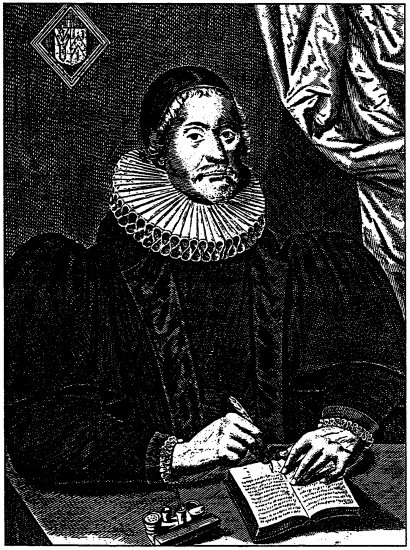THIS
VIEW OF LIFE
Fall
in the House of Ussher How foolish was the archbishop's
precise date for creation? by Stephen Jay Gould

James
Ussher, Primate of All Ireland |
I am uncomfortable
enough in a standard four-in-hand tie; pity the poor seventeenth-century businessmen
and divines, so often depicted in their constraining neck ruffs. The formidable
gentleman in the accompanying engraving commands the Latin title Jacobus Usserius,
Archiepiscopus Armachanus, Totius Hiberniae Primas, or James Ussher, Archbishop
of Armagh, and Primate of All Ireland. He is known to us today almost entirely
in ridicule--as the man who fixed the time of creation at 4004 B.C., and even
had the audacity to name the date and hour. October 23 at midday.Let
me begin with a personal gloss on the caption to this engraving, for my misreading
embodies, in microcosm, the entire theme of this essay. I confess that I have
always been greatly amused by the term primate, used in its ecclesiastical
sense as "an archbishop ... holding the first place among the bishops of
a province." My merriment must be shared by all zoologists, for primates,
to us, are monkeys and apes--members of the order Primates. Thus, when I see
a man described as a "primate," I can't help thinking of a big gorilla.
(Humans, of course, are also members of the order Primates, but zoologists, in
using the term, almost always refer to nearly 200 other species of the group--that
is, to lemurs, monkeys, and apes.) But this amusement is silly, parochial,
and misguided. The term comes from the Latin primas, meaning "chief"
or "first." In the mideighteenth century, Linnaeus introduced the word
to zoology as a designation for the "highest" order of mammals--the
group including humans. But the ecclesiastical usage has an equally obvious claim
to proper etymology and
|